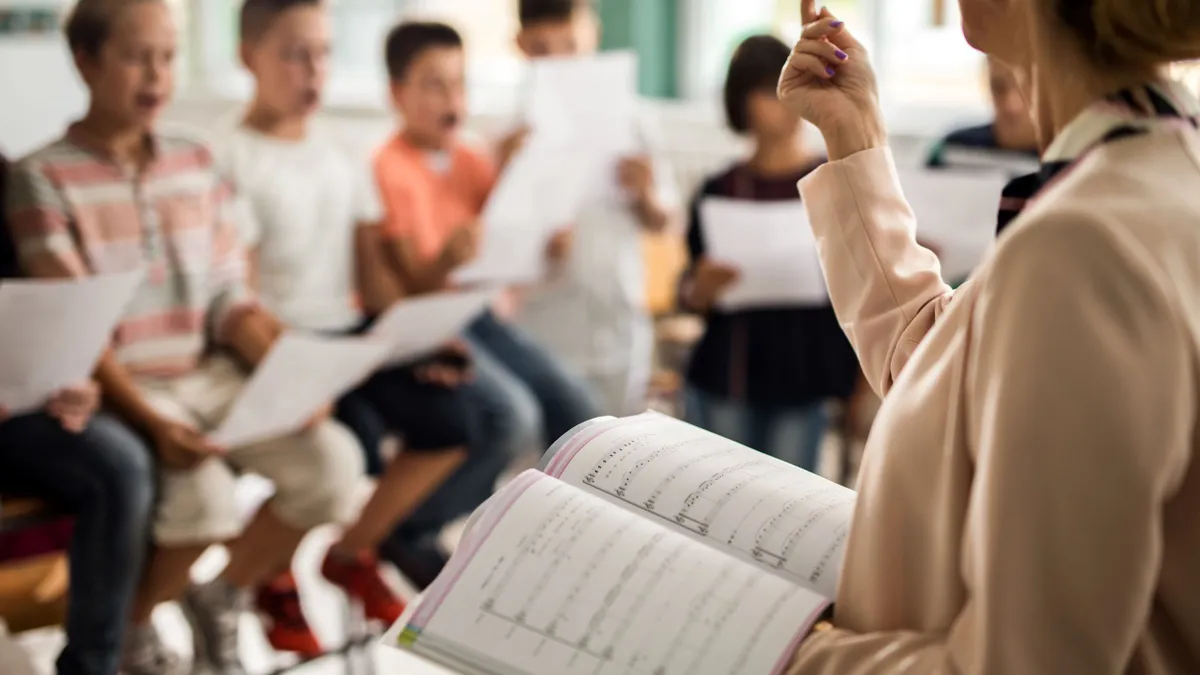Dive Brief:
- Research suggests music can be an effective tool in helping multilingual learners strengthen their English language skills, as the nature of song often serves up language in a repetitive and harmonious way.
- The use of music in language acquisition has the added benefit of improving English learners’ academic achievement, creative thinking and self esteem, according to research published last year in the journal Acta Psychologica.
- “Language competency and knowledge of linguistic structures are stronger among students who participate in music-based activities,” the study’s authors, from Harbin Normal University in China and Islamic Azad University in Iran, concluded.
Dive Insight:
Typically, multilingual learners are put through repetitive drills and lessons to encourage them to memorize new vocabulary and structure, according to the study’s authors. But music can be a vehicle for vocabulary and sentence development in a way that feels less dry and more engaging — and can even help to reproduce sounds being learned.
“Singing along to tunes facilitates pronunciation practice, resulting in clearer and more fluent speech,” according to the researchers, who studied 6,700 learners ages 7 to 27 over 10 weeks.
The researchers suggest that this may be because language development and music tap into sounds that are both expressive and rhythmic. Music may also convey emotional elements that can lift the mood of multilingual learners and boost their confidence and self-esteem.
Further, a 2021 study out of Spain found there may be a neuroscientific reason for why music enhances language learning — especially for very young learners. That study found that some research suggests “positive effects of music training on brain and cognitive development" in children ages 3 to 5.
Even if educators play music in the background while students work on writing assignments, researcher Berta Torras Vila of the University of Vic - Central University of Catalonia found that advocating for music to be woven into language learning practices can lead “to richer texts with more fantasy and more comprehensive vocabulary.”











